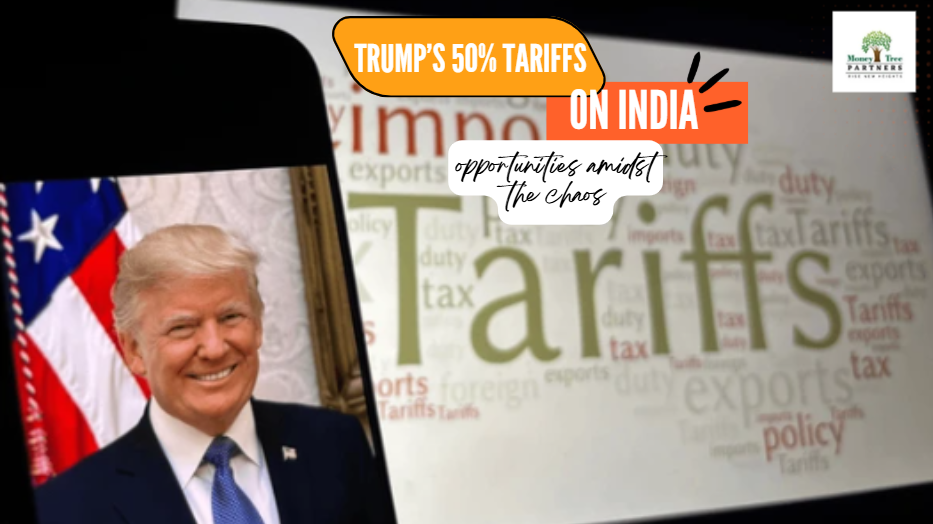NRI Taxation Updates 2026: What Every NRI Must Know Before Investing in India
As India continues to remain one of the most attractive investment destinations for Non-Resident Indians (NRIs), understanding the latest NRI taxation rules in 2026 has become more important than ever. While investment opportunities in India—such as mutual funds, SIPs, real estate, and insurance—offer strong long-term potential, taxation, FEMA compliance, and regulatory changes can significantly impact net returns if not planned correctly. At Money Tree Partners, a trusted Financial Advisor for NRI in Delhi, we work closely with global NRI clients to ensure their investments in India are tax-efficient, compliant, and goal-oriented. This detailed guide explains everything NRIs must know about taxation updates, investment implications, and smart planning strategies for 2026. Understanding NRI Status Under Indian Tax Laws (FY 2025–26) Before discussing taxation, it is essential to determine who qualifies as an NRI under Indian tax law. Residential Status Rules An individual is considered an NRI if: If you exceed the prescribed limits, you may fall under: Residential status directly affects tax liability. A professional NRI Investment Consultant in Delhi ensures correct classification and avoids unintended tax exposure. Scope of Taxation for NRIs in India NRIs are taxed only on income that is earned, accrued, or received in India. Taxable Income for NRIs Non-Taxable Income This distinction is critical and often misunderstood. Working with a Registered Investment Advisor in Delhi ensures income is reported accurately and legally. Major NRI Taxation Updates & Considerations for 2026 While there may not be drastic structural changes every year, 2026 places greater emphasis on compliance, transparency, and correct tax deduction, especially for NRIs. Capital Gains Tax for NRIs in 2026 Equity & Equity Mutual Funds Debt Mutual Funds Post-2023 changes continue: A Mutual Fund Investment Consultant in Delhi plays a crucial role in structuring portfolios that balance growth and tax efficiency. TDS Rules for NRI Investments – A Critical Area in 2026 One of the biggest challenges NRIs face is high Tax Deducted at Source (TDS). Key TDS Provisions ⚠️ Many NRIs lose liquidity due to excess TDS deductions and delayed refunds. A Delhi Investment Expert can: DTAA Benefits – Avoiding Double Taxation India has Double Taxation Avoidance Agreements (DTAA) with over 90 countries, including the USA, UK, Canada, Australia, UAE, and Singapore. DTAA Advantages However, DTAA benefits require: A trusted Financial Advisor in Delhi NCR ensures DTAA provisions are applied correctly and legally. SIP Investments for NRIs in 2026 – Tax & Wealth Strategy Systematic Investment Plans (SIPs) remain one of the most powerful tools for NRIs. Why SIPs Work Best for NRIs Choosing the Best SIP Agency in Delhi or experienced SIP Investment Advisors in Delhi ensures: Money Tree Partners is recognized among reliable SIP Managers in Delhi, helping NRIs invest seamlessly from abroad. Mutual Funds & Wealth Creation for NRIs India’s mutual fund industry offers diversified opportunities across: A qualified Mutual Fund Advisor in Delhi ensures: This approach is central to long-term wealth creation and capital preservation. Health Insurance & Tax Benefits for NRIs NRIs can still invest in Indian health insurance policies, especially for parents or dependents residing in India. Tax Benefits Consulting a Health Insurance Advisor in Nehru Place Delhi helps structure coverage efficiently while maximizing tax benefits. Retirement & Estate Planning for NRIs in 2026 As many NRIs plan to return to India or secure their family’s future, retirement and estate planning have become critical. Key Focus Areas A Wealth Management Advisor in Delhi ensures your assets are protected and transferred smoothly across generations. Why Professional Financial Planning Is Essential for NRIs DIY investing often leads to:❌ FEMA violations❌ Excess tax deductions❌ Poor asset allocation❌ Missed DTAA benefits A professional Financial Planner Company in Delhi offers: Money Tree Partners is regarded as the Best Financial Planner Company in Delhi, offering independent, fee-only advisory services. Why Choose Money Tree Partners – Leading NRI Investment Agency in Delhi ✔ Financial Advisor for NRI in South Delhi & Delhi NCR✔ Experienced NRI Investment Consultant team✔ Comprehensive Financial Planning Services in Delhi✔ Trusted Wealth Advisory Firm in Delhi✔ Transparent, fiduciary-driven approach Whether you are searching for: Money Tree Partners delivers expertise, trust, and long-term value. Final Thoughts: Invest Smart, Stay Compliant in 2026 NRI taxation in India is complex—but with the right guidance, it becomes an opportunity rather than a challenge. Understanding capital gains tax, TDS rules, DTAA benefits, SIP taxation, and compliance requirements is essential before investing in India in 2026. Before making any financial decisions, consult a: 📞 Plan better. Invest smarter. Stay tax-efficient.Money Tree Partners – Your Trusted NRI Investment Advisor in Delhi.
NRI Taxation Updates 2026: What Every NRI Must Know Before Investing in India Read More »











